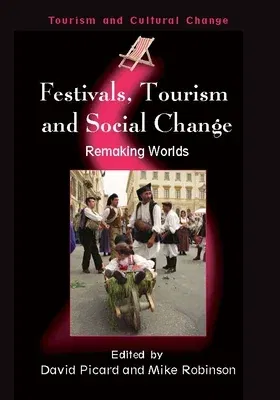Festivals, Tourism and Social Change: Remaking WorldsHardcover, 12 October 2006

Qty
1
Turbo
Ships in 2 - 3 days
In Stock
Free Delivery
Cash on Delivery
15 Days
Free Returns
Secure Checkout

Part of Series
Tourism and Cultural Change
Print Length
304 pages
Language
English
Publisher
Channel View Publications
Date Published
12 Oct 2006
ISBN-10
1845410483
ISBN-13
9781845410483
Description
Product Details
Book Format:
Hardcover
Country of Origin:
GB
Date Published:
12 October 2006
Dimensions:
21.34 x
14.73 x
2.29 cm
ISBN-10:
1845410483
ISBN-13:
9781845410483
Language:
English
Location:
Clevedon
Pages:
304
Publisher:
Series:
Weight:
521.63 gm